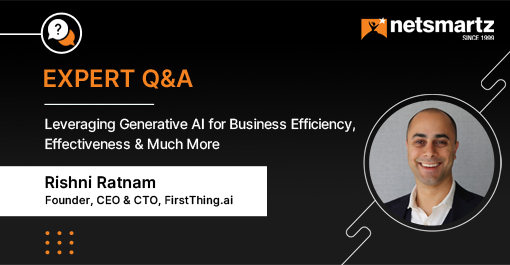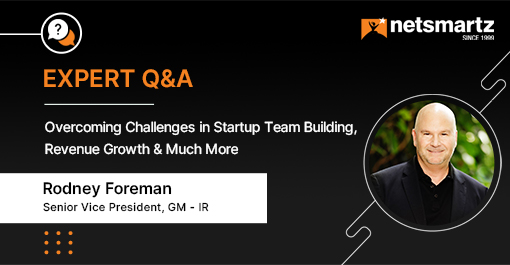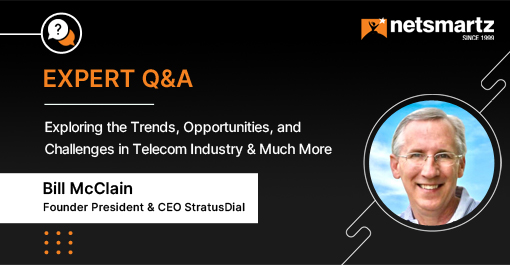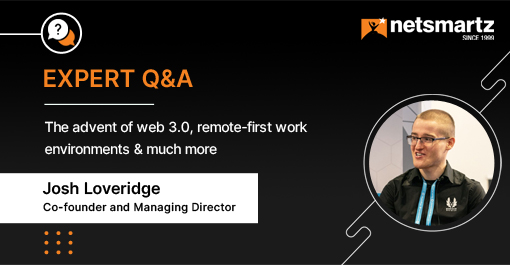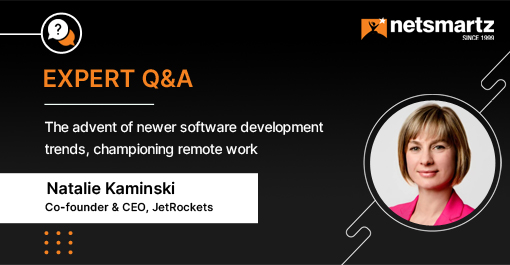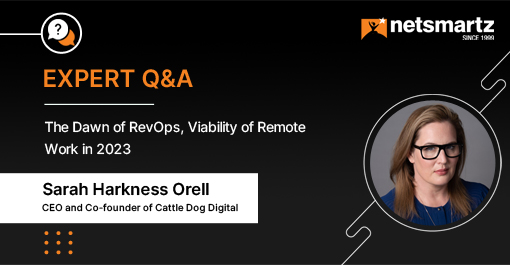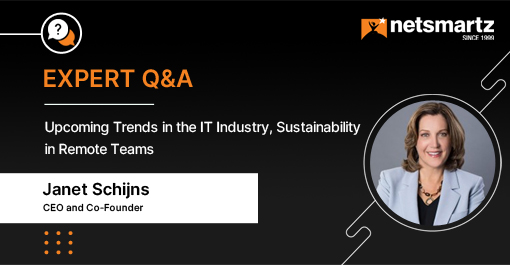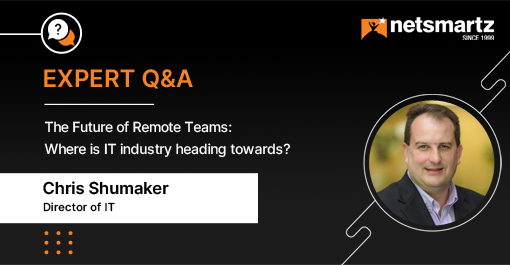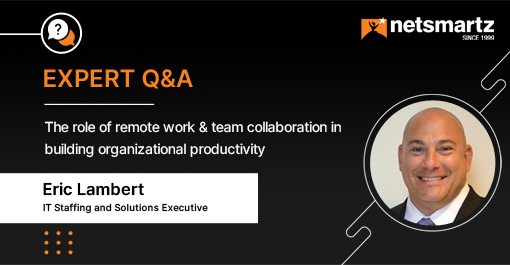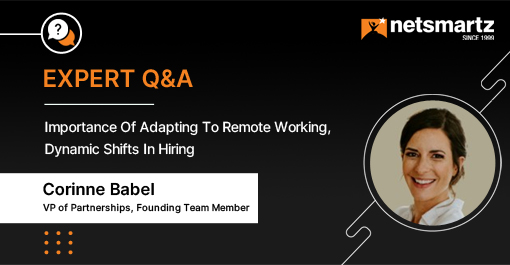Future of IT Industry – Remote & Distributed Team

IT services are an indispensable part of every organization to increase productivity, ease of doing business and to grow efficiently and economically in this cut-throat competition. After the pandemic, remote & distributed team is the norm that is helping organizations survive the tough times. Here, we did an expert Q&A series with Chris Shumaker, to help you better understand the future of remote teams and IT industry.
Want to contribute to our expert insights?
Contact Us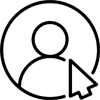 About Chris Shumaker
About Chris Shumaker
I am a Technology & Operations Management leader that can leverage my extensive experience, knowledge, and skills to transform, bring value, stability, and success to an organization. A leader that delivers seamless, streamlined technical operations by designing innovative technology solutions that help organizations move past operational challenges and excel.
1. What trends do you see coming up in the IT industry? And what are you most bullish about?
Security has been a big trend lately. I want to take that a little further. There has to be a better balance of securing information and a change in our approach. IT needs to do more “marketing” through better communication before, during and after a new security program, policies, et al. are put into production. We need to do market studies pre, during, and post product development. The greatest thing I am bullish about are the growing trends such as team collaboration, remote work and the point of productivity alongwith other many things.2. We are particularly intrigued by your experience in building high-performance teams? Can you shed more light on how you do that?
Building high performance teams is not rocket science. As leaders we must embrace “servant leadership”. It is more than just a buzz phrase; it is a mindset and a transformational leadership style and process. Building a high performing team is just that: a team where everyone has equal input, and the team comes up with a solution. I actively listen to everyone’s points, solutions, issues, etc. Then we work as a team and come up with the best solution. You combine that with mentoring the people within the organization and you end up attracting a lot of great talent that will do what is necessary to hit a deadline. Budget, or whatever the outcome needs to be. Mentoring is an issue that must be a part of this servant leadership because if you don’t know where your team members want to go you cannot help them get there. Even if that is not on your team.And how has that changed after the pandemic?
It has been more difficult to have those one-on-one conversations that were usually face to face. Now leaders must be more deliberate in connecting with your team daily. If you have not heard from someone all day, just check in on them. Sometimes you find out that they need help and just have not reached out yet or are trying to solve it on their own. Just by reaching out you show you care and that you want to help them.3. With your extensive experience in senior roles, what is the biggest challenge you face during ITIL operations? What are the larger challenges CTOs, CEOs face that you’re currently helping with?
Personally, ITIL operations have become more difficult with faster paced agile CI/CD. With most cloud applications it is hard to keep up with the changes with each application and how it will affect the organization. Let alone trying to align your strategy with the strategy that Microsoft, Adobe, AutoCAD, etc. has and how it affects your organization. We don’t have a crystal ball and a lot of people think that IT does. The IT world is very fluid, and you have to be able to adjust accordingly. The one thing that all of IT needs to do is communicate with “marketing” strategies with something new, transformational, or culture shifts. If we don’t do that it is difficult to provide technological tools that truly supplement and augment the physical tools out in the field. The biggest challenge IT has is making the IT department an asset to the company, not a hindrance. IT should not be a stumbling block; they should be a solution center.4. As a Director of IT, how have you seen remote work and distributed teams affect the standard operating procedures? Do you think remote teams are sustainable? Particularly for enterprises and large software organizations?
Remote work changed a lot of operations. People had to change their management tactics. Much of what was done on the fly had to be done deliberately. People were forced to learn new things and programs like Teams, Goto Meeting, google meets, etc. It forced them to change how they operate and think outside of the box. I helped several leaders with transitioning from traditional leadership to virtual meetings, managing at different hours of the day, and virtual teams. It was a crazy time, and most people were really trying to figure it out. Now everyone, for the most part, has figured it out. I know we can sustain remote work at all levels. That does not mean that you must have everything virtual because sometimes you must be in the same room to actually get some things decided. However, by increasing communication and putting your heart into your team you can sustain remote work. Wrapping Up
Wrapping Up
Remote work is the future of IT industry, but the main challenge lies with sustaining and embracing this change. While communication is the biggest challenge when it comes to remote & offshore teams, but the gaps can be filled in with appropriate measures. Change is inevitable and the future of every organization lies in moving forward with this change.

Are You An Influencer?
Make Your Mark as a Thought Leader
We invite industry influencers to participate in our Q&A panel, offering the audience valuable insight into cutting-edge technology trends, platforms, and more.









